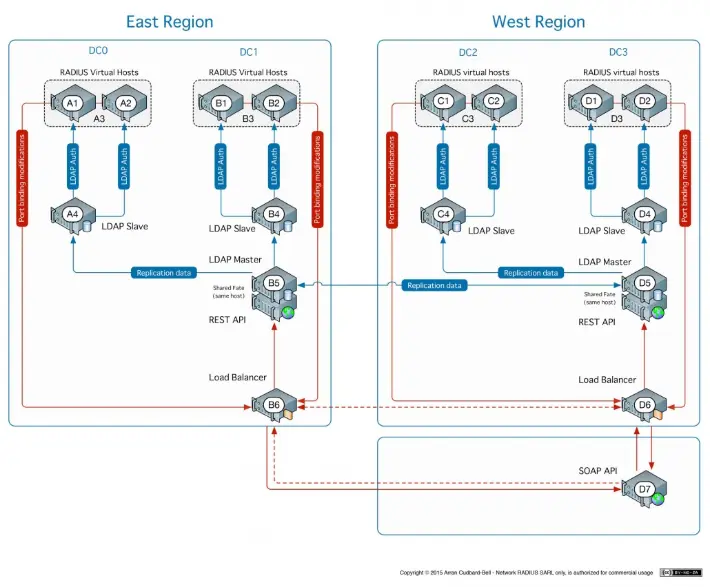Professional RADIUS server installation services
RADIUS server installation is more involved than just setting up a few software packages. The default RADIUS products are intended to be the basis for a customised local configuration, and configuring it requires expertise in both network security solutions and database design.
We listen to your needs and then design a system to match. Our installation support team can install a new system, upgrade existing systems, or migrate legacy RADIUS servers to our product—ensuring long-term stability for your authentication infrastructure.
Architecture and installation process
Our RADIUS installation team can design a customised RADIUS solution for your needs. Professional RADIUS server installation involves designing the network architecture to optimise the number of RADIUS and database servers for every need. We install the RADIUS server, configure the operating system for optimal performance, and structure the database in a way that works with your existing system. Or we can design a new system from scratch and migrate the data.
We can configure 802.1X, PEAP, EAP-TTLS, EAP-TLS, or authentication against Active Directory. Our RADIUS server installation team can also implement multi-factor authentication and configure MAC authentication or MAC authorisation bypass.
For existing systems, we can either migrate those systems to our product, or we can configure our product to work with existing databases.

RADIUS custom configuration
Call on us for RADIUS installation support and receive the highest quality technological assistance for a robust, high-performance system that’s easy to maintain.
Customer success story: Architecture optimisation
Our customer had installed a basic RADIUS server only to discover that its performance did not meet their system needs. They were seeing only a few authentications per second on what should have been a high-end machine, while their real-time requirements were much higher.
Our RADIUS installation support team determined that the problem was an external dependency. The RADIUS server was waiting for another network element to respond before sending a response to the Network Access Server (NAS).
We optimised their configuration and achieved a rate of over 900 authentications per second. This performance level allowed them to move their new system into production.
Customer success story: Database performance
Another customer had installed a basic RADIUS server with an SQL database back end. After only a few months, the system slowed down to an unacceptable performance level.
Our RADIUS server installation experts redesigned their system to optimise use of the database. We added tables and indices, and we also updated the RADIUS SQL queries for the new system.
The final system regained the optimal performance level they had
originally experienced. Even with 10 times as much data in the SQL
database as before, their new RADIUS system retained its highest
performance level for the long term
Need more help?
InkBridge Networks has been at the forefront of network security solutions for over two decades, tackling complex challenges across various protocols and infrastructures. Our team of seasoned experts has encountered and solved nearly every conceivable network security issue. If you're looking for insights from the architects behind some of the internet's most foundational authentication systems, you can request a quote for network security solutions here.
Related Articles

High availability and performance
Building a RADIUS system that can handle 10 million users takes time. Our experienced team can work with you to design a customized solution using your desired hardware and Operating System to achieve that goal.

Database design principles for RADIUS systems
Database design is often overlooked as a critical element of a RADIUS ecosystem. In practice, when we work with our clients, we usually spend the bulk of our time optimizing the database architecture.